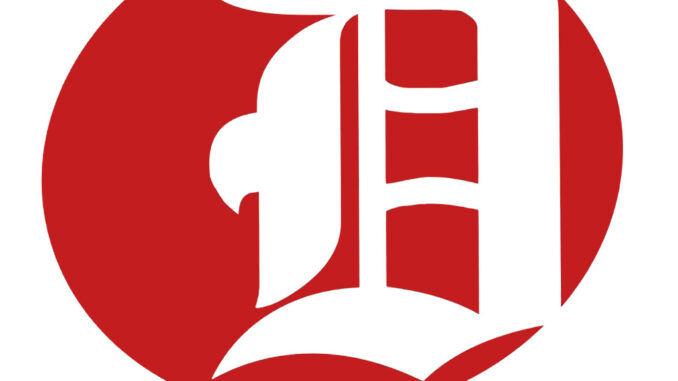
Zach Petroff | Opinions Editor
It seems unreal that I will be graduating after this semester. The road to a higher education has not been easy. It took two wars, a lot of soul searching and ultimately mustering the courage to leave home and hang out with a bunch of 20 year olds all day.
And despite my constant sarcastic tone, I am going to miss the Bluff.
One thing I am certainly not going to miss is the all-encompassing plagiarism policy. The policy, if violated, could lead to some extreme repercussions that includesexpulsion.
And you know it’s a big deal when Duquesne would forgo its retention strategy to ensure its academic integrity is adhered to.
My goal is to be a writer. If someone stole my words and used them as their own I would be floored (and flattered). If someone is making money off of my hard work, that seems like stealing.
I understand the emphasis on not taking someone else’s work and passing it off as your own, I think it is an important issue that might need more scrutiny, in not just academia.
What I am having a hard time understanding is how the umbrella of the plagiarism policy keeps growing in an academic setting.
When I asked ChatGPT what plagiarism was, it told me that “it refers to the act of using someone else’s work, ideas or intellectual property without giving proper credit or acknowledgment to the original source. It involves presenting someone else’s words, thoughts or creations as your own whether intentionally or unintentionally.”
That seems like a reasonable definition of plagiarism.
What is concerning is that there are areas that seem to go past that well-defined definition. Let’s take the “double-dipping” policy as an example. According to the university’s website, plagiarism includes “the submission, without the instructor’s approval, of work submitted for credit in another course.”
So if I put in the work to write a well-thought out, well-researched paper, I am only allowed to use it once? If I choose to use it for another purpose, then I am committing university plagiarism and subjected to the same repercussions as someone who blatantly stole another person’s work.
The double-dipping policy doesn’t seem to match ChatGPT’s definition of plagiarism.
The way I look at it, I would be having my work reevaluated by a different professor. One of the main points of college is getting prompt and diverse feedback, so if I feel the work is worthy of further evaluation, how is that plagiarism?
It is not.
If the academic policy that is being safeguarded is susceptible to “double-dipping,” perhaps the evaluation process of academics needs to be reevaluated.
Perhaps course materials are too similar to one another.
The last thing I ever want to do is blame professors. My learning experience, even with professors whose ideologies or methods I did not agree with, has been phenomenal. They are underpaid, underappreciated and overworked.
What I think needs to be looked at is the process and over-reaching reactionary policies that are here and that are unavoidable.
Higher education, by nature, is reactionary to the job market. The idea behind college is to get people ready and trained for the workforce.
There is a natural delay between education and practical application. That delay, which is inevitable, can be doing a disservice to the students (and their parents) who are spending a lot of money to become well-trained professionals.
It’s my opinion that higher education, especially prestigious schools like Duquesne, should be setting the trends, not adhering to them but that is for another article.
Technology is here. Every time something new comes out, there seems to be this hesitation and even distaste for the progression. Artificial intelligence is not going anywhere. Even with pushback, it would take a high level of naiveté to believe that AI programs are not being used in various jobs.
New technology and fear of the unknown is usually the perfect equation for knee-jerk reactions and unfair judgments. One of the battlefields against this new technology appears to be set on college campuses and academia.
I am not advocating for the use of ChatGPT in classes, or having a robot do research papers. What I am advocating for is an err on the side of caution and look for implementation rather than exclusion.
Take for example the students at Texas A&M who, according to the Washington Post, were threatened with failing their animal science class for using ChatGPT to cheat. The professor, Jared Mumm, said he copied the students’ essays into ChatGPT and asked the program if artificial intelligence had been used to write their assignment.
ChatGPT claimed that it had written the assignments, sparking a controversy at the university that garnered national attention and put the grades and graduation of students at risk.
According to a spokesperson for the Texas A&M University of Commerce, no students ended up failing the class. One student did admit to using ChatGPT for the course.
Change is inevitable. College is the perfect opportunity to grow for not just the students, but for the polices and learning methods.

